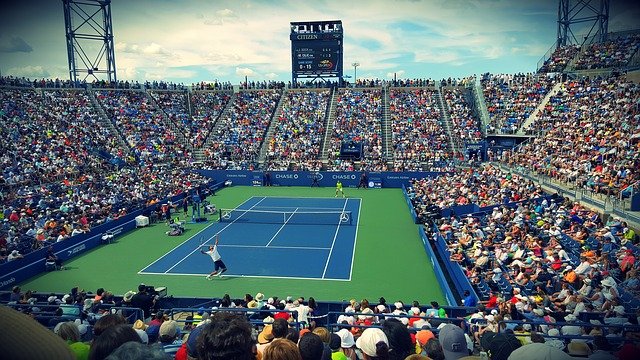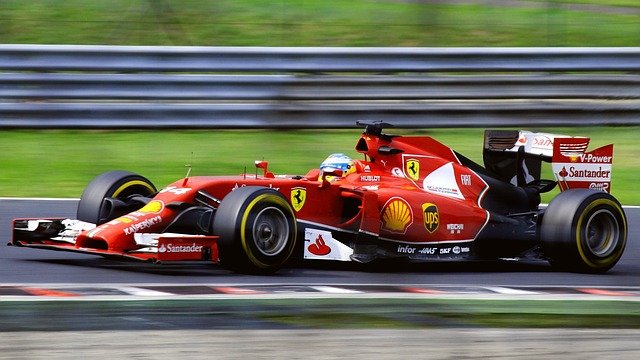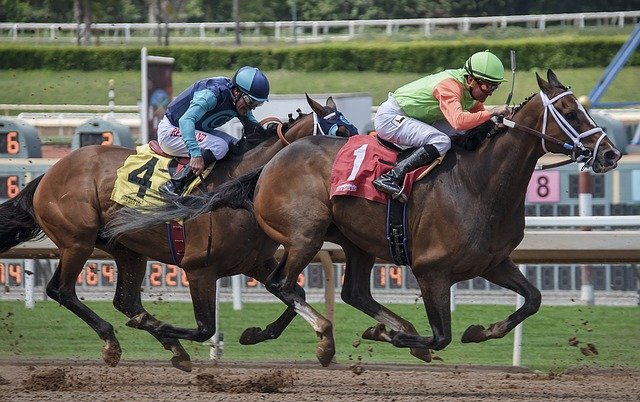Three Australian Sports Events
It is no secret that Australia is a sporting nation, one steeped in sporting history. Australians love all sports, so it should be no surprise to learn there are dozens of major sporting events taking place in Australia every year. Think of a sport or game, and you can bet your bottom dollar that there will be an event for it Down Under at some point on the calendar.
Although Australian rules football, rugby league, rugby union, association football, and cricket are dominant sports in Australia, there are plenty of other sports events that you simply have to take the time to see in the flesh if you are ever in the country. Add the following three events to your Australian bucket list.
Australian Open – Tennis

What better way to kick off a new year than by heading to Melbourne for the Australian Open tennis tournament. The Australian Open is the first of four Grand Slam tennis events held each year, and it takes place in glorious sunshine at Melbourne Park. The tournament hit the headlines for the wrong reasons in 2022 when reigning Novak Djokovic was banned from entering Australia. Djokovic was a massive favourite with the online betting site Bovada, but his refusal to receive the COVID-19 vaccination left Australian officials no choice but to deport him from the country.
Spanish tennis legend Rafael Nadal took full advantage and won the men’s singles event and became the first player to win 21 Grand Slam titles. Imagine seeing history written before your very eyes. Australians performed exceptionally well at the 2022 Australian Open. Ashleigh Barty won the women’s singles event while Thanasi Kokkinakis and Nick Kyrgios triumphed in the men’s doubles.
Formula 1 Australian Grand Prix – Motor Racing

The Australian Grand Prix is where you need to head if you are a fan of elite motor racing. It is the second oldest surviving motor racing competition in Australia after the Alpine rally of East Gippsland. Formula 1 is contracted to return to Australia every year until 2025, but the Grand Prix will likely continue returning as long as F1 is a sport.
Albert Park Circuit in Melbourne has been the home of the F1 Australian Grand Prix since 1996; it has hosted it every year with the exception of 2020 and 2021, which were cancelled due to the COVID-19 pandemic. The race usually takes place in March, and it draws in massive crowds; more than 100,000 spectators were there on race day in 2019.
The legendary Michael Schumacher and the late Aussie star Lex Davison are the most successful drivers in the event’s 86-year history. They both won four Australian Grand Prix.
The Melbourne Cup – Horse Racing

They call horse racing the “sport of kings”, which runs true when it comes to the Melbourne Cup. The Melbourne Cup is definitely Australia’s most famous annual horse race, one that garners the attention of every Australian and horse racing lovers from all corners of the Earth.
Scheduled for 15:00 on the first Tuesday of November, the Melbourne Cup is known as “the race that stops the nation.” Every Australian tunes in to watch what is the richest two-mile handicap race on the planet. The event has had an $8 million purse since 2019, which sees the winner paid $4.4 million, the runner-up $1.1 million, and third-place $550,000. Those vast sums are distributed as 85% to the horse’s owner, 10% to the trainer, and 5% to the jockey, making it the most potentially lucrative race in the world for jockeys because they can take home $400,000 for their victory.
The week-long festival sees spectators dressed up to the nines, enjoying champagne, and having a whale of a time. The race is such a big part of Australian culture that it is an official public holiday in the state of Victoria.
Must Read: Australian Companies Failing to Report on Cyber Security











